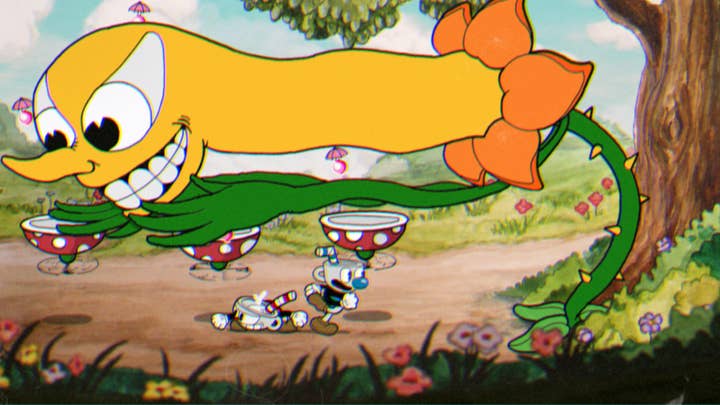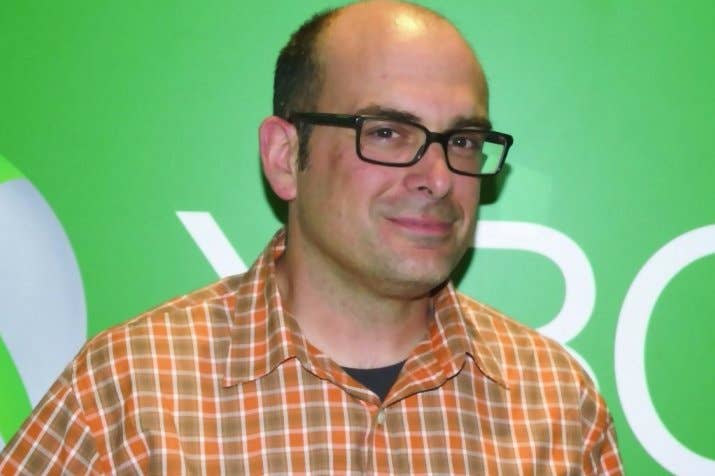ID@Xbox: "Our north star is 'make life easy for devs'"
Chris Charla on promoting ID@Xbox titles and why the infamous parity clause isn't a big deal
The ID@Xbox program was announced in August 2013 to a mixed reaction from developers, but since then has built a diverse and interesting portfolio of titles. GamesIndustry.biz caught up with ID@Xbox games director Chris Charla to find out how the initiative has changed and how it will continue to evolve with the addition of the Windows 10 platform.
Some of it might just be timing, and when they got dev kits. But at this point more than a thousand independent studios have gotten dev kits; we send out a ton of dev kits every day. There are hundreds and hundreds of games that have signed publishing agreements as independent publishers to bring their games to Xbox One.
What we really focus on is making life easy for independent developers. Our competitors are going to do what they're going to do and it's awesome. I've got a PS4, a 3DS and everything else but all we can do is just try and make Xbox One as great a platform and as easy as a platform for developers to work on as possible.
Our ultimate goal is that we want players to have access to a huge variety of games and the nice thing about working on ID@Xbox - for me and the whole team - is that our north star is really simple. It's just make life easy for developers and the rest will take care of itself. And so we do that, both by helping to promote them and amplify their promotion... and also doing a lot of work inside Microsoft to smooth the path for them and make sure that everything we do on Xbox, and now on Windows 10, they know what's going on, they hear tips and tricks and get the right whitepapers and everything like that.
There's a lot that goes into that. Some developers are finding that 'hey, I can do it all myself which is awesome but it turns out I only like doing 80 per cent of it myself. And actually this other 20 per cent maybe I would like to partner with a publisher or just a company that provides publishing services or a PR firm.'

And that's great; there's no thing that says you as a developer have to do every single thing yourself, but it's important that you have the freedom to do everything yourself and then also the freedom to partner when it makes sense. And we've really tried to support that at ID@Xbox.
You see companies like Team17 publishing other independent developers' work, providing all kinds of support whether it's…
Right? And so I don't know the specific story there but there are a lot of developers who are like 'hey I just want to focus on my game' and if there's a Team17 with Debbie [Bestwik] who's been in this business forever and who can help those stories come to market, that's just awesome. So we really really support that and encourage it and work hard to make sure that can happen.
And I do think that for independent developers discoverability is really important and so that's why we do things like amplify the promotion that they have. [With] the Xbox Store we get incredible support in terms of letting people know when a new game comes out from the ID program. Not just the programmatic stuff like top selling and top rated but the editorial things like focused and featured. We work hard to support the games socially through social media channels and on Xbox Wire.
"At this point more than a thousand independent studios have gotten dev kits; we send out a ton of dev kits every day"
We'll be doing the same sorts of things on Windows 10. We understand that making sure that access to great games is there for players is crucial and the only way you're going to get that is making sure that developers have an easy path onto the platform and that they have a sustainable situation in the store.
Those are the issues that get us up in the morning, you know what I mean? That's the fun and the challenge of the job. Everyday there's a new challenge and how do we do that? I think you'll see… you know Phil [Spencer] mentioned that on Windows 10 the store is going to be an app, which means that it's going to get revved and updated and improved, you're not going to have to wait for a service pack to see an update to the store.
One of the most delightful things to me as a consumer on Xbox One has been every month Microsoft takes feedback and then implements something, whether it's screenshots or an easy way snap and unsnap, and I think you'll see those same kind of changes in the store. I'm excited to see how Microsoft addresses the challenge of discoverability in the future and I think a company with the resources of ours, we have great opportunities there.
We have learned a ton from talking to developers… some of it's boring or whatever but [they're] things that we thought developers might be concerned about and you're like 'I'm not even sure how to say this, but we just better come out and say it,' and then developers are like 'yeah, who cares?'

And then there's other things where developers have said 'we really need to know more about this and you need to expand on it' and we really try and make life easier for the developers but a huge portion of that is listening to the developers about where life is difficult. And it's not a matter of fixing things that are broken - although obviously we try and fix anything that's broken - it's really more of a management of the processes because the development scene changes so quickly, what developers need and want changes really rapidly. If a developer calls us and asks us for advice we'll always answer the question, tell them everything we can, and so if two years ago a developer and said 'when should I announce my game?' I would have said 'announce your game the second you write the first line of code and just keep talking about it endlessly until you ship.'
Today that might not be the best advice. Today the super long lead time of announce to ship might not work as well because it's been done; maybe now just announce eight months or a year before. I don't have those answers but I'm happy to tell developers what's going on. So we're constantly listening to feedback, paying attention to the market and trying to make sure our developers who should be heads down, making the best game they can feel that we're a great partner in terms of knowing what's up.
"Because the development scene changes so quickly, what developers need and want changes really rapidly"
I actually think we're pretty flexible. What we've always said is that we can't talk about the clause, developers should get in touch, but the reality is if a developer gets in touch and there's a situation where they can't sim-ship because they just don't have the resources to do testing across three consoles at the same time? We totally get that. And that's no problem.
If a game is not going to be coming to Xbox One for many months because there's been an exclusivity agreement signed or something like that then all we really ask is that they do something with the game so that it feels fresh for Xbox players. Developers seem to respond pretty well to that.
Yeah, we just sit back. [Laughs.] Obviously a lot of people still apply to the program and we work with them but we also do as much work as we can to be out there talking to developers where they are, whether it's going to PAX Australia or this year we're going to do ten-plus developer days all over Europe. We're going to go to the local developer organisation and do events. It's a never ending job and one of the most fun parts of the job is going out there are meeting new developers and getting to tell them about the program and seeing the cool stuff they're doing. So it's both.

